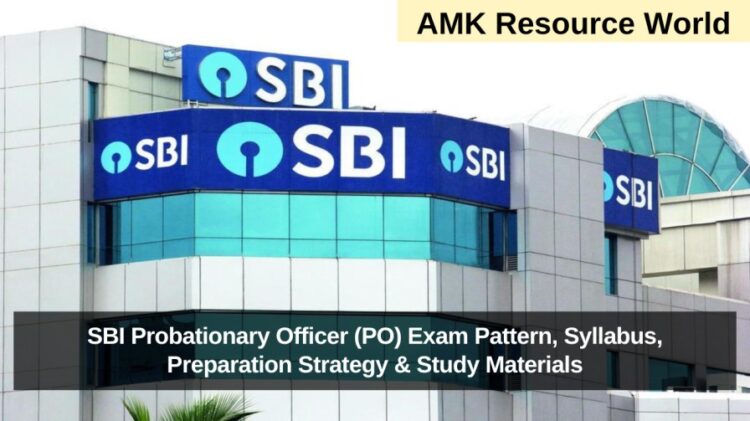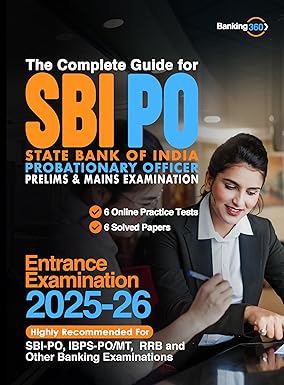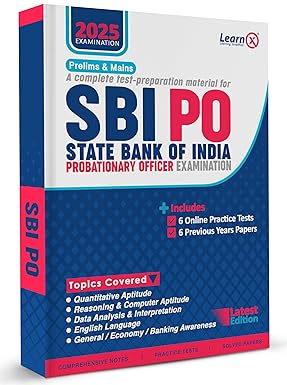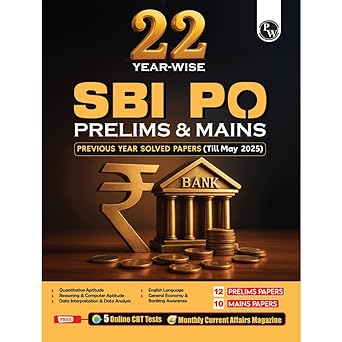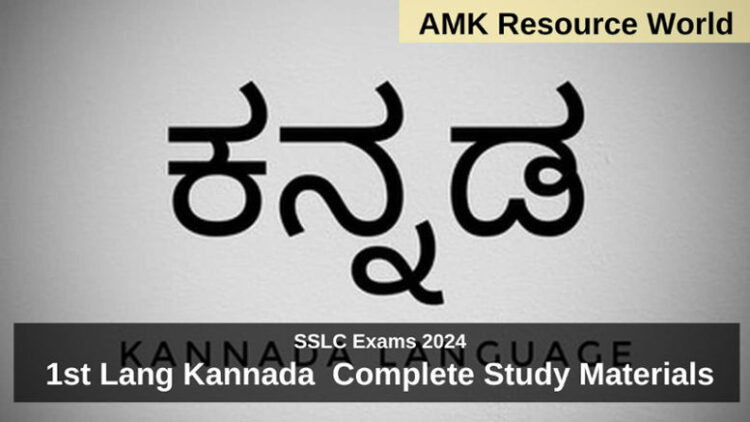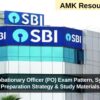The SBI Probationary Officer (PO) exam is one of the most prestigious and competitive banking exams in India. Conducted by the State Bank of India, this exam opens the door for aspirants seeking a lucrative and dynamic career in the banking sector. With lakhs of applicants every year, cracking the SBI PO exam requires a deep understanding of its exam pattern, syllabus, and a well-structured preparation strategy backed by reliable study materials.
OVERVIEW OF SBI PO EXAM
SBI recruits Probationary Officers every year to serve in its various branches across India. The selection process is conducted in three main stages:
- Preliminary Examination (Prelims)
- Main Examination (Mains)
- Group Exercise & Interview (Phase III)
SBI PO 2025 EXAM PATTERN
The SBI PO 2025 examination is conducted in three phases – Preliminary Examination, Main Examination, and Group Exercise & Interview. The Preliminary Examination is qualifying in nature and serves as the first screening stage. It is an objective-type online test consisting of three sections: English Language, Quantitative Aptitude, and Reasoning Ability. Each section has individual timing of 20 minutes, making the total duration 60 minutes.
The English Language section includes 30 questions for 30 marks, the Quantitative Aptitude section has 35 questions for 35 marks, and the Reasoning Ability section also comprises 35 questions for 35 marks, adding up to a total of 100 questions carrying 100 marks. There is negative marking in the prelims, with 0.25 marks deducted for every incorrect answer.
The Main Examination comprises both Objective and Descriptive Tests, conducted online. The Objective Test is of 200 marks and has a duration of 180 minutes, with each section allocated a specific time limit. It includes four sections: Reasoning & Computer Aptitude (40 questions, 50 marks, 60 minutes), Data Analysis & Interpretation (30 questions, 50 marks, 45 minutes),
General/Economy/Banking Awareness (50 questions, 60 marks, 35 minutes), and English Language (35 questions, 40 marks, 40 minutes). This phase is designed to assess in-depth knowledge and analytical skills. Following the objective test, candidates are required to complete the Descriptive Test worth 50 marks, in which they must write an essay and a letter within 30 minutes. Performance in the main examination is crucial as it contributes significantly to the final merit list.
SBI PO 2025 SYLLABUS
The SBI PO 2025 syllabus is divided into two main stages: Preliminary and Main Examination, each designed to assess a candidate’s aptitude, comprehension, and analytical abilities across multiple subjects. The Prelims syllabus includes three sections: English Language, Quantitative Aptitude, and Reasoning Ability.
In the English Language section, candidates are tested on their reading and grammatical comprehension. Key topics include Reading Comprehension, Cloze Tests, Fill in the Blanks, Sentence Rearrangement, Error Detection, Para Jumbles, and Vocabulary, particularly synonyms and antonyms. This section checks the candidate’s understanding of written English and ability to interpret information correctly.
The Quantitative Aptitude section aims to evaluate numerical ability and problem-solving skills. Important topics include Simplification and Approximation, Number Series, Quadratic Equations, and various forms of Data Interpretation like bar graphs, pie charts, line graphs, and tables. In addition, candidates must be well-versed in Time & Work, Time, Speed & Distance, Profit & Loss, Ratio & Proportion, Percentages, and Simple and Compound Interest, all of which test mathematical aptitude relevant to banking tasks.
The Reasoning Ability section tests logic and decision-making skills through topics like Puzzles and Seating Arrangement, Inequality, Syllogism, Blood Relations, Direction Sense, Alphanumeric Series, Coding-Decoding, and Input-Output. This section is designed to assess a candidate’s critical thinking and ability to identify patterns or solve structured problems.
The Main Examination syllabus is more comprehensive and includes four major objective sections along with a descriptive paper. The Reasoning and Computer Aptitude section includes advanced topics such as Logical Reasoning, High-Level Puzzles and Seating Arrangements, Data Sufficiency, Coding-Decoding, Input-Output, and Syllogism. It also assesses basic computer knowledge including Internet, MS Office, Keyboard Shortcuts, and Networking Basics.
The Data Analysis and Interpretation section tests the candidate’s proficiency with numbers and ability to derive insights from data. Topics include Caselet Data Interpretation, Pie Charts, Bar and Line Graphs, along with concepts from Probability, Permutation and Combination, Quadratic Equations, and Data Sufficiency.
The General/Economy/Banking Awareness section evaluates the candidate’s awareness of current events and financial systems. Candidates must prepare for Current Affairs from the past six months, Financial and Banking Awareness, Economic Terminologies, and Static General Knowledge such as important days, books, capitals, and geography. Additionally, understanding Government Schemes and updates from RBI and SEBI is crucial.
In the English Language section of the Mains, the complexity increases with emphasis on High-Level Reading Comprehension, Grammar-based Questions, Sentence Connectors, Para Jumbles, Error Spotting, and Vocabulary Usage. This section tests deeper linguistic analysis and the ability to process complex language structures.
The Descriptive Paper forms an essential part of the Mains and evaluates the candidate’s written communication skills. It includes Essay Writing on topics related to banking, social issues, or current affairs, and Letter Writing which may be formal or informal, such as letters related to customer service, complaints, job applications, or requests to bank authorities. The ability to structure content clearly and convey thoughts coherently is vital to score well in this section.
SBI PO PREPARATION STRATEGY
Success in SBI PO requires focused preparation, time management, and regular practice. Here’s a subject-wise and stage-wise strategy:
Prelims Strategy
- Focus on speed and accuracy.
- Solve at least 3 full-length mock tests per week.
- Time your practice sessions strictly.
- Attempt previous year questions.
Mains Strategy
- Strengthen data interpretation and reasoning puzzles.
- Practice high-level RCs and descriptive writing.
- Read newspapers (The Hindu, Indian Express) for current affairs and vocabulary.
- Maintain a notebook for current affairs revision.
Descriptive Paper Tips
- Practice 3–4 essays and letters weekly.
- Follow a structure: Introduction – Body – Conclusion.
- Stick to word limits (150 for letter, 250 for essay).
- Focus on clarity, grammar, and logical flow.
Interview Strategy
- Keep updated on banking and financial news.
- Read SBI Annual Report highlights.
- Prepare answers to common HR questions (Why banking? Why SBI? Strengths?).
- Practice speaking clearly and confidently.
TOP STUDY MATERIALS FOR SBI PO 2025
Books:
- Quantitative Aptitude: Quantitative Aptitude by R.S. Aggarwal, Fast Track Arithmetic by Rajesh Verma
- Reasoning: A Modern Approach to Verbal & Non-Verbal Reasoning by R.S. Aggarwal
- English Language: Objective General English by S.P. Bakshi, Word Power Made Easy by Norman Lewis
- General Awareness: Banking Awareness by Arihant, Manorama Yearbook, Pratiyogita Darpan
- Descriptive English: Descriptive General English by S.P. Bakshi and Richa Sharma
Online Platforms & Mock Tests:
- Oliveboard, Adda247, PracticeMock, Testbook, and Gradeup offer:
- Sectional and full mock tests
- GK capsules and quizzes
- Daily current affairs updates
- Video classes and doubt sessions
Newspapers & Magazines:
- The Hindu, Economic Times, Business Standard
- Yojana Magazine, RBI Bulletin
TIPS FOR EFFECTIVE PREPARATION
Create a Realistic Study Plan: Allot 2-3 hours for Prelims topics and 2 hours for Mains topics daily.
Use a Timer: Speed is essential. Practice with a timer to simulate exam conditions.
Analyze Mock Tests: Post-mock analysis helps identify weak areas.
Join Study Groups: Telegram/WhatsApp groups for doubt clarification and updates.
Stay Consistent: Daily practice, current affairs revision, and mock test analysis are key.
Revise Weekly: Keep Sundays for revision and solving previous week’s mistakes.
Cracking the SBI PO 2025 exam demands perseverance, strategic preparation, and the right resources. Understanding the exam pattern and syllabus thoroughly lays a strong foundation. By combining smart study plans, regular mock tests, and current affairs updates, candidates can significantly improve their chances of clearing each phase. With the right mindset, tools, and discipline, aspiring candidates can turn their dream of becoming an SBI Probationary Officer into reality.
